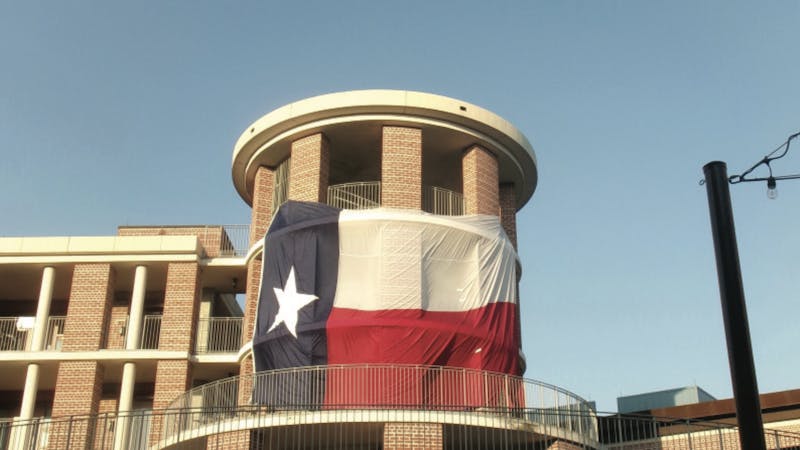Chair of U.S. House committee talks floods, space at Baker Institute
U.S. Rep. Brian Babin gave public remarks entitled “The Future of American Science” at Rice’s Baker Institute for Public Policy Aug. 27. Babin, who chairs the House Committee on Science, Space, and Technology and represents Texas’ 36th Congressional District, discussed the Kerr County floods, NASA programs and scientific collaboration with China at the event.
The fireside chat began with a short introduction by Neal Lane, a senior fellow at the Baker Institute. Babin then joined Paul Cherukuri, Rice’s vice president for innovation, to discuss audience questions.
Babin also addressed the July Kerr County flooding in central Texas. The flooding, which occurred along the Guadalupe River, killed at least 135 people and caused property damage of up to $200 million.
Babin said that the issue came from poor weather and the flooding equipment. Kerr County, at the time of the flooding, lacked an outdoor siren system. To address the issue, Babin said that he and other lawmakers are working to pass a Weather Act to establish more detection programs and invest in technology that could provide real-time information on floods before they strike.
“One of the biggest controversies about [the floods] was that we have advanced notice, that we have proper warning, and we’re working on a weather act as we speak,” Babin said.
Babin also discussed the involvement of private companies and the Department of Government Efficiency in U.S. space programs.
“I think that there’s excessive bureaucracy — the paperwork, the morass, the red tape — whatever you want to call it,” Babin said during the discussion. “The last thing we want for our space program is to be … tethered to the Earth by red tape.”
“We’re absolutely finding ways to cut through this red tape,” he continued. “That’s one of [DOGE’s] reasons for being and that is to unshackle our research and development institutions like Rice University, unshackle our private space companies, you name it.”
He also addressed NASA’s Constellation program, which was formulated in the Bush administration and canceled in the Obama administration. The aim of this program was to complete the International Space Station — still under construction at the time — return to the moon by 2020 and crew a flight to Mars.
In response, Babin said he wants to ensure the continuity of science programs between administrations.
“I came to Congress during the Obama administration … which had cancelled a program called Constellation that was going to get us back to the mood that had been formulated during the Bush administration,” Babin said.
Currently, he is working on NASA’s Artemis program, which aims to land humans on the moon again.
“We’re working very hard right now to keep our Artemis program from being terminated,” Babin said. “The last thing we want to do is to land on the lunar surface to see a ‘no trespassing’ sign written in Mandarin.”
Babin said that the free-flowing dissemination of information in the scientific community can sometimes lead to theft of valuable information from the United States by spies from countries such as China.
“We have lost so much of our information, which has been pilfered over the years, that we can no longer afford to ignore,” Babin said. “Just yesterday, right across the street, MD Anderson arrested one of their doctors, who was from China, who was pilfering information. This is an extremely serious problem that we can no longer look the other way.”
More from The Rice Thresher
Rice lands high on Niche, Forbes college ranking lists
Rice recently ranked No. 10 on Niche’s Best Colleges in America list and No. 12 on Forbes’ annual America’s Top Colleges list in 2026. It was also recognized in several categories by the Princeton Review, placing in the top 10 in four categories.
From post-human novels to augmented reality, Rice hires new faculty
Rice welcomed 97 new professors this fall across disciplines, including a posthumanist Harvard scholar, a husband-wife duo and a computer science professor who graduated from Rice thrice.

First public of the year reckons with threats of a dry campus
After a Dis-O that saw four times as many calls for intoxication-related transports of students to the hospital compared to the prior three years, Cory Voskanian, a Martel College socials head tasked with planning the first public of the year, said that he was feeling the pressure.


Please note All comments are eligible for publication by The Rice Thresher.